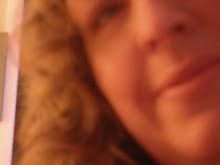Actually, a lot of academe does my head in simply because it is so dry. But I understand the methods. Sometimes you need to bring things back to absolute rank dryness to be able to see them properly, before you let them burst forward again in all their "isness".
I actually think that some good comes out of academia, and I was just happy to be involved in a subject where the word "God" was allowed to be spoken without it being disparaged as a concept that was proven to be false by so-and-so back in the 60s or whatever.
Indeed, often I will read things that kinda made me smile, because I think how it is that God is in everything, is woven into the very fabric of who were are, if we can only understand that. And how it is that even in academia, where in many respects God is viewed as some sort of an anachronism, I notice him creeping back in unbeknownst, in through the back door, and it makes me laugh :) Like this:
In an earlier inquiry into the origins of selfhood, I presented self and language as mutually implicated in an interdependent system of symbolic behavior. To illustrate the dawn of the self-consciousness that is the stuff of autobiographical discourse, I focused on the celebrated well-house episode in Helen Keller's Story of My Life (1902), arguing that it offers "a rare, possibly unique, account ... of the emergence of selfhood that occurs ... at the moment when language is acquired" (Fictions 209-10). Although Keller had previously mastered a small vocabulary of finger-words spelled into her hand by her teacher, Anne Sullivan, it was only when Sullivan placed one of her hands under the spout and spelled into the other the word water that Keller achieved simultaneously a sense of language and self. It was truly a kind of intellectual and spiritual baptism: "I knew then that 'w-a-t-e-r' meant the wonderful cool something that was flowing over my hand. That living word awakened my soul" (Story 23). I summarized the upshot of the well-house episode schematically as follows: "the self ('my soul') emerges in the presence of language ('w-a-t-e-r') and the other ('Teacher')" (Fictions 212).
Relational Selves, Relational Lives - Eakin
And the Word became flesh and dwelt among them.
And the Word became flesh and dwelt among them.




Hehe. Made me laugh, too.
ReplyDeleteCool :)
ReplyDeleteSometimes I wonder if I'm making any sense when I write stuff. I was reading this post before and thinking, "Hmm, is this post sprechen de Deutchse or is it just sprechen de shit?"
:) :(